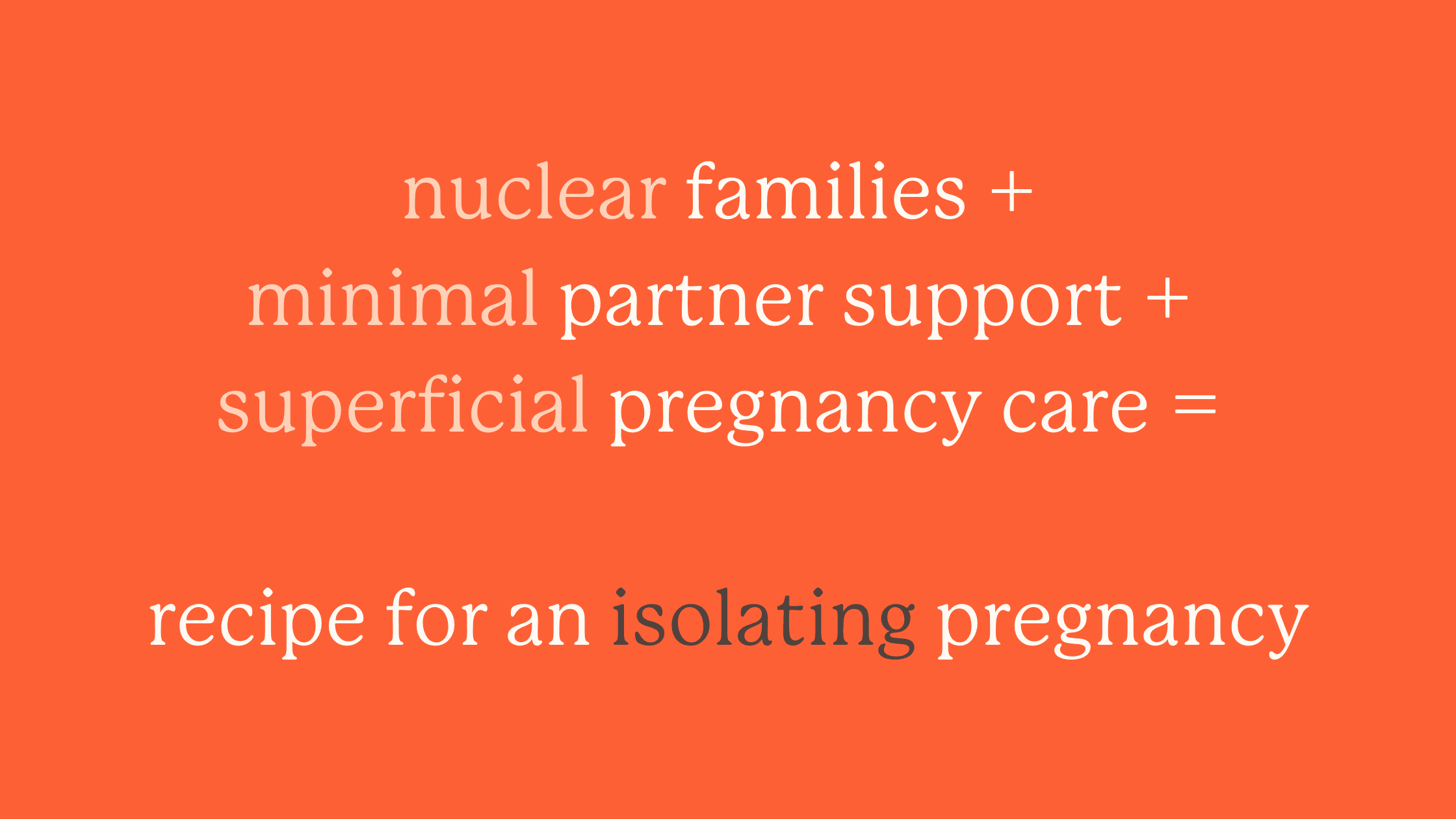Basics
Pro Tips
Pregnancy is complex & multi-faceted, and that is why women need care that goes beyond medical support.
What do we mean by support? Someone/something who/that guides them through the entire journey — from when they find out they’re pregnant, to the time of birth.
Ironically, when the two lines show up on their stick, parents-to-be are suddenly expected to know what to do - which expert to go to, what questions to ask, how to eat, and how much to exercise. It’s all supposed to be intuitive to them - obviously.
There are OBGYNs, mental therapists, and nutritionists, out there - but just not enough good ones. And even for the good ones - moms-to-be aren’t aware of them - it’s a classic matching problem. Additionally, studies show that women fear talking about any mental issues or setbacks for fear of being perceived as incapable of raising their children. The stigma isolates them even further.
Mothers feel unsupported, anxious, and overwhelmed during childbirth and postpartum.
The emotional, and mental stress that women undergo is heavily understated. More so with families becoming more nuclear by the day, and with limited awareness among partners – women are forced to rely heavily on their offline gynecologist, varied online resources, and generational traditional practices.

When we had googled content on pregnancy and pregnancy journeys, they were all supremely outdated. Answers to questions such as early pregnancy symptoms, dealing with ectopic pregnancies, and pregnancy mood swings ++ have evolved. Relevant books were published eons ago, and good ones are not easily found in India.
Below is a statement from a mom-to-be in her second trimester:
Online spends so much time telling you this is the most crucial part of a pregnancy with the highest chance of miscarriage and then you get no help or questions answered until your 8-week appointment! What should I eat? Google. Should I update my exercise regimen? Google. How do I balance existing medical conditions? Google. Have I miscarried but don't know it?

Solving this issue requires multifold solutions. It starts with ensuring women have the right information, building awareness among fathers-to-be, and getting access to holistic care that goes beyond traditional healthcare.
While we strive to ensure pregnant couples have access to the right tools, services, and comfort, here are a few pregnancy pro tips for Moms-to-be :) :
Ensure you’re seeking expert help that goes beyond your OB-GYN – consider nutrition, movement, and most importantly mental health therapy.
It's a good idea to be open with your partner about how you're feeling. It's OK to let them know if you feel vulnerable or need extra love, attention, and reassurance.
Your partner might just be feeling left out because of the weight of emotional, mental, and environmental changes taking place often. Here are a few of the things you both could do:
Read parenting books together.
Carve out time each day to talk about things that are unrelated to pregnancy and the baby.
Seek true data-backed sources for your questions. Find your own truth. While we understand that the answers to these questions you’re looking at have not been standardized, they need to be personalized – choose your digital info portal carefully :)
On an end note, if you’re a mom-to-be reading this – remember, that you’re never asking too much, and you’re never taking too much space.
———————————————————————————————————
Get your Dula today - Book your FREE Consultation call.
dula
